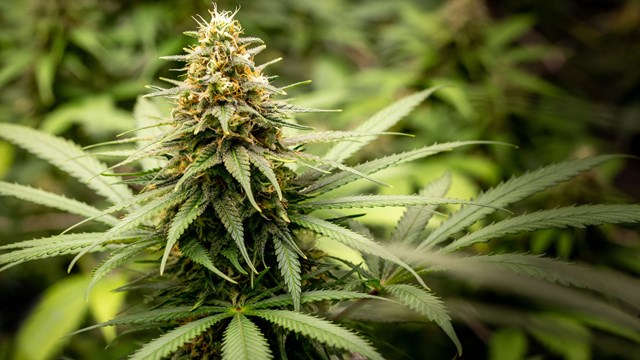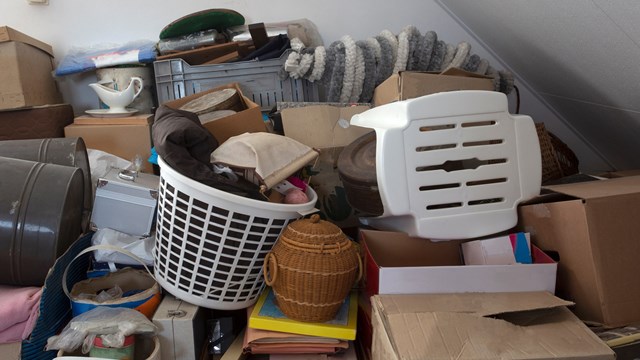
With more and more states legalizing marijuana for both medical and recreational purposes, co-op and condo boards and management are faced with yet another quality-of-life issue; conflict between those who are happy to finally be able to use cannabis openly, and those who still consider it an illicit drug, regardless of its change in legal status. Second-hand tobacco smoke is already a long-standing chronic problem in many - if not most - communities, and many boards are concerned that legal weed will add a whole new dimension to the problem.
Is All smoke...Smoke?
Perhaps the overarching question is whether different kinds of smoke can be treated differently. Are all smokes equal under the law, or are some types more privileged than others? Can a co-op or condo community permit tobacco smoking within apartments - or for that matter in common areas - but forbid consumption of cannabis?
The term ‘second-hand smoke’ refers to a non smoking person inhaling a smoker’s ‘first hand’ smoke, and being put at risk for illness as a result. It’s been known for decades that second-hand cigarette smoke has negative health consequences even for those not consuming it directly - it aggravates existing allergies and conditions like asthma and emphysema, and can lead to heart and respiratory disease, as well as cancer. While marijuana smoke may contain fewer toxins, less is widely known about its possible dangers. Even if smoking was completely harmless, non smokers still have a right to not inadvertently partake every time their neighbor does.
“Even in your own apartment, there is no absolute right to smoke, if doing so creates a nuisance or disturbs your neighbors,” says Michelle Quinn, a partner with Gallet Dryer Berkey, a law firm based in New York City. “Most co-op and condo buildings have existing provisions in their proprietary lease and/or house rules that prohibit residents from permitting offensive odors from seeping into their neighbors’ apartments, or the common areas of the building. Odor nuisances are not limited to smoking - they can also include smells from cooking, pets, and hoarding.Boards can place restrictions on all kinds of smoking; generally speaking, the limitations on smoking cannabis would be the same as the limitations on smoking tobacco or vaping/electronic cigarettes. It would be extremely difficult to justify permitting one and not the other, since now they are all legal.”
The overall picture in New Jersey is a little different at present. “There’ve been no real regulations adopted yet,” says Scott Piekarsky of Philips Nizer, a law firm located in Hackensack. “No marketing of recreational cannabis has begun yet, as the law was effective only since February 2021. Medical marijuana is sold and used, but recreational use hasn’t commenced. One co-op client [of ours] is concerned about the second-hand smoke problem, and asked for legal advice. The statute speaks to smoking, vaping and aerosolizing of cannabis. If you’re a co-op, you can regulate or prohibit it in both the units or structure of the co-op. Co-op boards have broad powers, but condos can only institute rules if approved by the association and the majority of unit owners. Additionally, condominium associations may be limited to regulating this issue in common areas only. Co-op corporations own everything included in the property, but condominium associations only own pieces of common elements. As a co-op shareholder you really are a renter more than an owner. By nature of that ownership structure, co-op boards have different rights than condos.”
Having Your Weed & Smoking it Too
So if a co-op or condo community is weighing whether to go smoke-free, does doing so mean that all types of smoke have to be banned, or can the board be selective as to what’s okay and what’s not? What effect would a blanket smoking ban have on existing tobacco smokers? Must they be grandfathered in, which seems a bit contradictory to eliminating smoke from the building’s environment, or can a board force owners who currently smoke to go cold-turkey?
“The rule would have to apply to all kinds of smoking,” says Quinn, “since the basis for the rule would be grounded in the best interest of the building. Permitting one form of smoking and not another defeats that purpose. Whether from cigarettes or pot, there would still be a risk of smoking-caused fires, and neighbors would still complain of offensive odors. Besides, if a ban were selectively applied, the building would not be considered ’smoke-free’ and would not benefit from the higher property values generally commanded by non-smoking buildings. ”
According to Piekarsky, "It’s difficult to say right now because the situation is too new, but it looks like you could try to prohibit cannabis [in your building or HOA,] but not tobacco. There will be challenges to this of course, [but] it’s probably better to ban all smoke, rather than one or the other. It should also be taken into consideration when drafting such rules that there are existing tobacco regulations in New Jersey prohibiting smoking in common areas etc., but those same regulations don’t say you can’t smoke in your unit.” Again, that relates to the contrasting forms of co-op and condo ownership and the rights of residents in those respective communities.
Grandfathering
When it comes to addressing the rights of a community’s smoking residents in the context of drafting rules and navigating the issue of cannabis use, Quinn says that “There is no legal or standard requirement for ‘grandfathering’ or other considerations.”
In communities that opt to ban smoking in both common areas and units, grandfathering permits smoking residents already living in the building when the policy is implemented to continue to smoke despite the ban. New residents and their guests must abide by the new rule.
As previously mentioned, ‘grandfathering’ is clearly not ideal, if the whole idea of banning smoking is to, well, ban smoking. Quinn points out that having some residents exempt from the ban “makes enforcing the ‘smoke-free’ policy considerably more difficult due to the pervading nature of smoke and odors.” She also stresses that “‘Grandfathering’ and medical marijuana use are both exceptions to a building’s no-smoking policy.
Piekarsky adds that he believes the law in New Jersey does provide for grandfathering. “It is a legal thing. I think there would be grandfathering if you moved in [to your building] when smoking was allowed. The board would be hard pressed to prohibit it for those who bought in as smokers, and those who require medical marijuana would be able to smoke it without restriction. Medical use trumps anything else. Use of medical marijuana with a provider prescription is the same thing as emotional support animals being allowed in buildings that otherwise prohibit pets.”
As with any socially and legally evolving issue, rules around marijuana use in co-ops and condos will almost certainly require updating, adjusting, and amending to reflect the law and uphold residents’ rights. Consulting your legal advisors to help guide your board to make the best decisions on behalf of your particular community is a wise place to start.









Leave a Comment